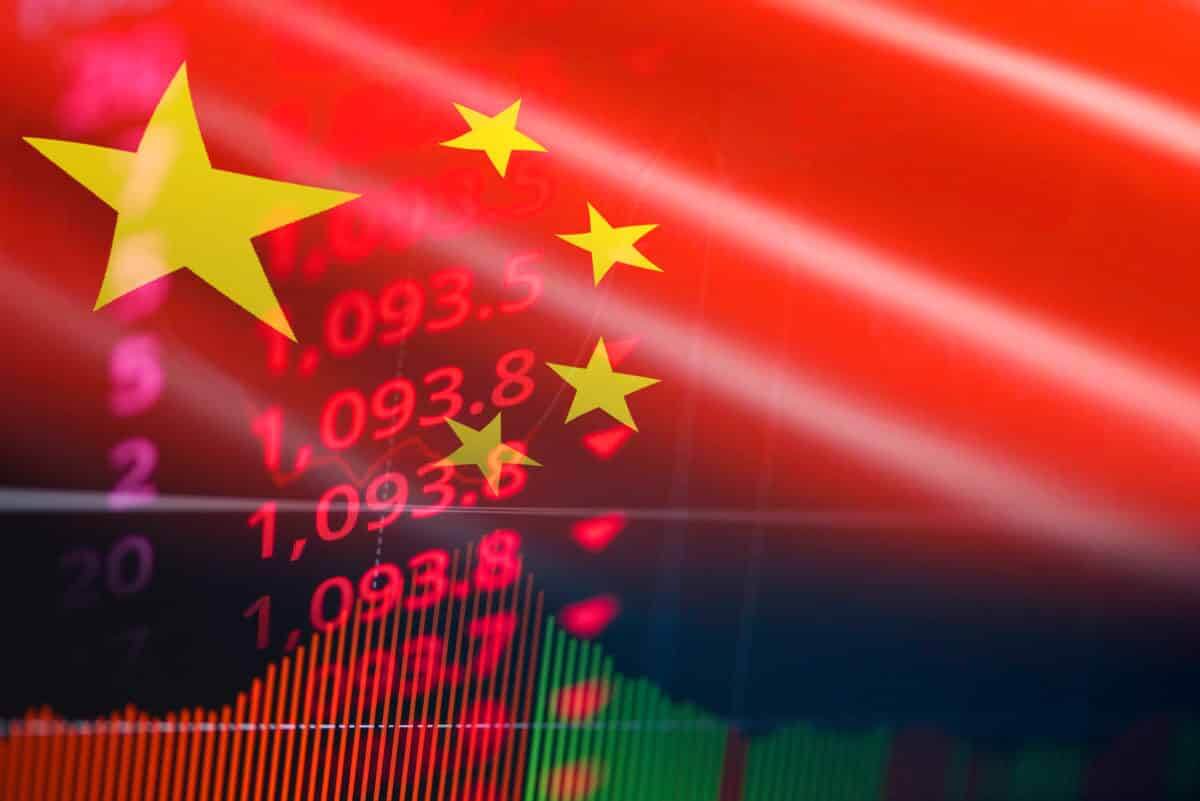
China Stocks Drop – Property Sector Influence
Chinese stocks dropped on Monday after data showed that real estate investment and sales growth were still prolonged. This, in turn, affects the economic prospects of the country. China’s Beijing Stock Exchange has started trading, and new shares have increased six times. After the morning session, Shanghai Composite Index fell 0.4% to 3526.71 points, while the CSI300 index fell 0.4% to 4870.47 points. The Hang Seng Index stood at 25293.82 points and fell 0.1%. Hong Kong, China Enterprises Index, fell to 9047.59 and lost 0.7%.
In October, China’s industrial production and retail sales grew faster than expected, with new restrictions in place to control the spread and supply shortage of COVID-19. However, the slowdown in the property sector has had a significant impact on the economic outlook.
In January-October, real estate investment and sales growth slowed compared to the first nine months. The start of new construction has been significantly reduced. Zhiwei Zhang, the chief economist at Pinpoint Asset Management, says the real estate sector is worsening. Slowing increases, not decreasing. This is the main risk of a macro perspective over the next few quarters. According to Ken Cheung, chief strategist at Mizuho Bank Asia FX, any easing of funding restrictions for developers will help support China’s growth momentum in the fourth quarter.
China Giant Stocks
Trading on the Chinese Beijing Stock Exchange began on Monday. The shares of 10 companies that recently held initial public offerings on the new stock exchange have risen significantly.
Shares of real estate firms, cars, and new energy fell from 2.5% to 4%. The health and media sub-index increased by 1.7% and 3.7%, respectively. Securities firms lost 0.6%. According to Industrial Securities, creating the Beijing Stock Exchange will bring more opportunities for brokers in terms of investment banking business.
Country Garden Services Holdings in the Hong Kong market fell 5.6%, the most significant percentage drop in the Hang Seng index. The Hang Seng Mainland Properties Index dropped 3.6%. The Hang Seng Tech Index added 0.5%, although shares in the sector were mixed. Alibaba Group and Meituan fell 1.1% and 0.4%, respectively. Tencent Holdings rose 1.8%.
China’s Retail Sales – Unexpected Results
According to the latest data, Chinese retail sales in October increased more than expected. In total, by 4.9% compared to the previous year. The results thus improved the Reuters poll, which predicted a 3.5% increase.
Better-than-expected sales last month were linked to China’s big public holiday. However, at the same time, parts of retail sales, such as cars or clothing, fell in October compared to the previous year. Industrial production also exceeded expectations. Compared to last year, this sector had a 3.5% increase in October. Fixed asset investments increased by 6.1% from January to October compared to the previous year.
According to experts and economists, the decline in real estate has hit the industry hard. At the same time, a new wave of Covid spread was reducing household consumption. The rate of decline in real estate may slow down, but industrial production will still not recover for some time.
Chinese regulators have sought to cut the property industry’s confidence in debt growth in recent times. The Evergrande crisis has raised concerns among global investors about the potential consequences for the world’s second-largest economy. Property accounts for a quarter of China’s gross domestic product. According to the National Bureau of Statistics, new home prices fell in more than 50 major cities in China in October compared to the previous month.
Inflationary Tension in China
It is noteworthy that the Chinese economy has faced several challenges this year. This referred to both electricity shortages, floods, consumer spending.
Rising commodity prices have caused stagflation concerns. This is the case when prices rise; however, business activity stagnates, leading to unemployment and reducing consumer spending power. However, unemployment in Chinese cities remained stable at 4.9% last month compared to September. Unemployment among people under the age of 24 is slightly lower than the previous month.
China’s CPI rose 1.5% in October from a year earlier. The manufacturer’s price index rose 13.5%, the fastest since 1995. Experts believe that CPI inflation will not be a severe problem for monetary policy despite the current situation. It is possible that by 2022 the producer price index will fall; Which will be conditioned by the easing of restrictions on the supply of goods.
The bright spot for the Chinese economy is now strong export growth. The National GDP of the International Monetary Fund still exceeds the global growth forecast by 5.9%.




